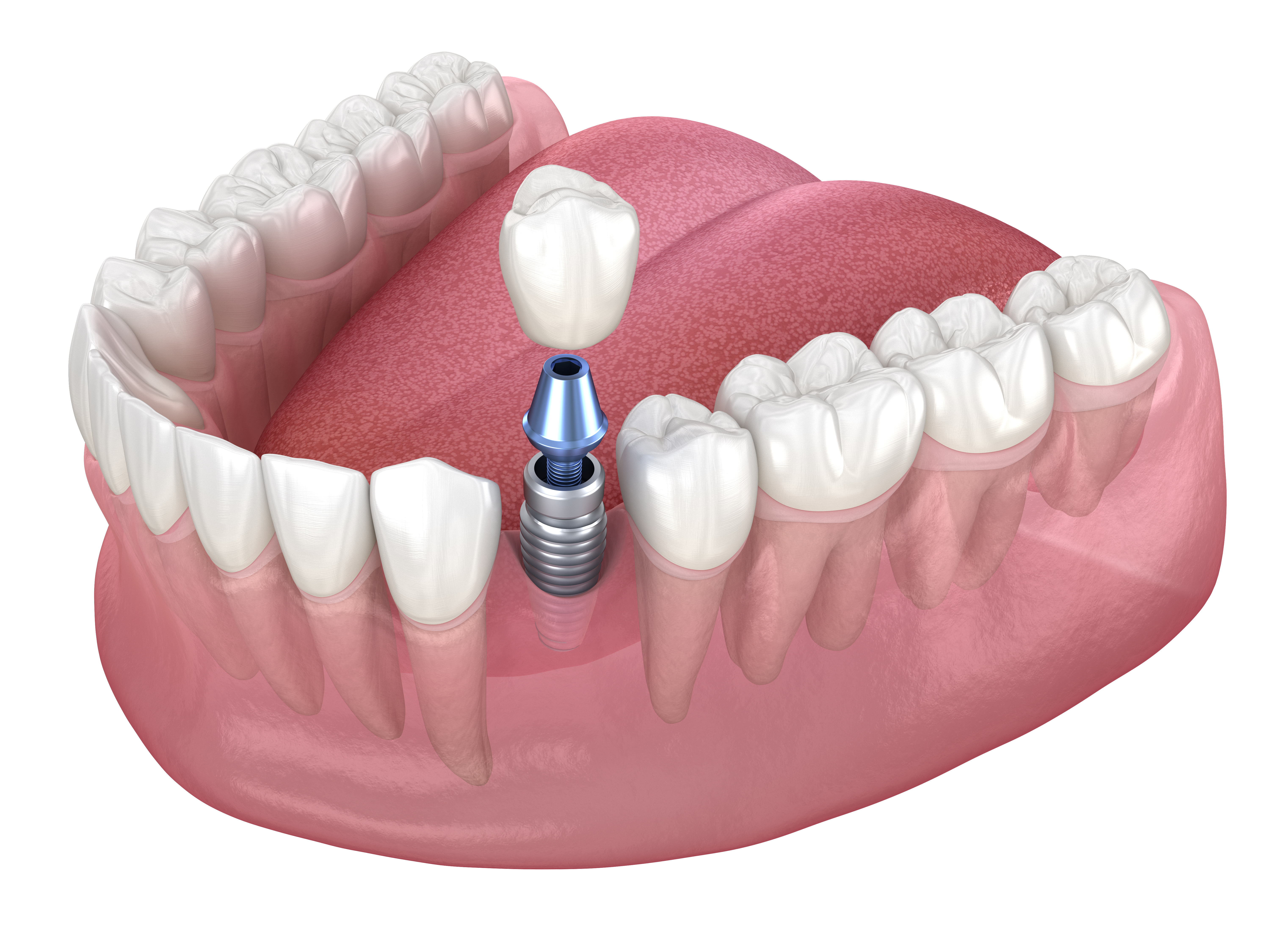Considering Dental Implants? What You Should Know
Missing teeth can significantly impact both your oral health and self-confidence. Dental implants have revolutionized restorative dentistry by providing a permanent solution that looks, feels, and functions like natural teeth. If you're considering dental implants as a tooth replacement option, it's important to understand what they are, how they work, and whether they might be right for you.

What Are Dental Implants and How Do They Work?
Dental implants are small titanium posts surgically placed into the jawbone beneath the gum line. These posts act as artificial tooth roots, providing a stable foundation for replacement teeth. Once the implant is in place, it fuses with the surrounding bone tissue through a process called osseointegration. This integration creates a strong and durable base for the artificial tooth, or crown, which is attached to the implant. The result is a replacement tooth that looks, feels, and functions like a natural tooth.
Who Might Consider Implants?
Dental implants are suitable for a wide range of individuals who have lost one or more teeth due to various reasons, including injury, decay, or gum disease. Candidates for dental implants typically include:
-
Adults with fully developed jawbones
-
Individuals with adequate bone density to support the implant
-
Those with healthy gum tissue free of periodontal disease
-
Patients who are unable or unwilling to wear dentures
-
Non-smokers or those willing to quit smoking during the implant process
It’s important to note that each case is unique, and a thorough evaluation by a dental professional is necessary to determine if implants are the right choice for you.
The Implant Procedure Step by Step
The dental implant process typically involves several steps and can take several months to complete:
-
Initial Consultation: Your dentist will evaluate your oral health, take X-rays, and create a treatment plan.
-
Bone Grafting (if necessary): If your jawbone lacks sufficient density, a bone graft may be required to create a solid base for the implant.
-
Implant Placement: The titanium post is surgically inserted into the jawbone.
-
Healing and Osseointegration: This process typically takes 3-6 months as the implant fuses with the bone.
-
Abutment Placement: Once healing is complete, an abutment is attached to the implant to hold the new tooth.
-
Crown Attachment: Finally, a custom-made crown is attached to the abutment, completing the implant process.
Benefits of Dental Implants
Dental implants offer numerous advantages over other tooth replacement options:
-
Natural Appearance: Implants look and feel like natural teeth, enhancing your smile and confidence.
-
Improved Speech: Unlike ill-fitting dentures, implants allow you to speak without worry of teeth slipping.
-
Comfortable Fit: As implants become part of you, they eliminate the discomfort often associated with removable dentures.
-
Easier Eating: Implants function like your own teeth, allowing you to eat your favorite foods without pain.
-
Durability: With proper care, implants can last many years, often a lifetime.
-
Improved Oral Health: Unlike tooth-supported bridges, implants don’t require reducing other teeth, leaving more of your natural teeth intact.
Understanding the Cost of Dental Implants
The cost of dental implants can vary significantly based on factors such as the number of teeth being replaced, the need for additional procedures like bone grafts, and your location. While dental implants may have a higher upfront cost compared to other tooth replacement options, their longevity and benefits often make them a cost-effective choice in the long run.
| Procedure | Average Cost Range |
|---|---|
| Single Tooth Implant | $3,000 - $4,500 |
| Implant-Supported Bridge (3 teeth) | $5,000 - $15,000 |
| Full Mouth Implants | $25,000 - $50,000 |
Prices, rates, or cost estimates mentioned in this article are based on the latest available information but may change over time. Independent research is advised before making financial decisions.
It’s important to note that many dental insurance plans now offer at least partial coverage for implant procedures. Additionally, many dental offices provide financing options to help make the treatment more accessible.
Dental implants represent a significant advancement in tooth replacement technology, offering a durable and natural-looking solution for those with missing teeth. While the process requires careful consideration and a commitment to oral health, the long-term benefits of improved functionality, aesthetics, and overall oral health make dental implants an attractive option for many patients. As with any medical procedure, it’s crucial to consult with a qualified dental professional to determine if dental implants are the right choice for your specific situation.
This article is for informational purposes only and should not be considered medical advice. Please consult a qualified healthcare professional for personalized guidance and treatment.




